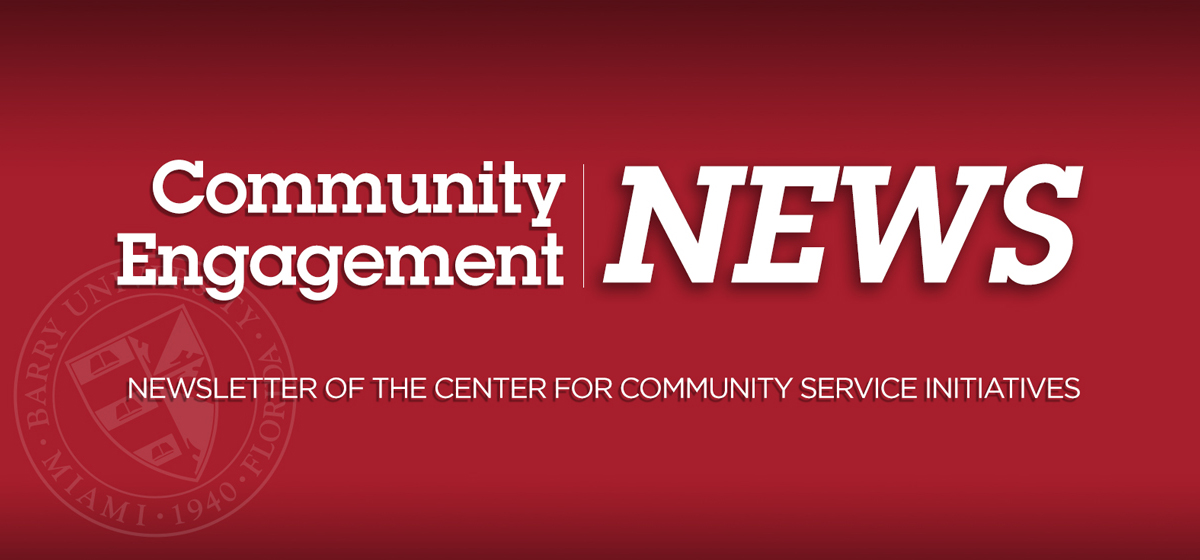July 19, 2021
IN THIS ISSUE
- Expansion of Flagship Civic Engagement Program Planned for Next Academic Year
- Deliberative Dialogue Forums Bring Stakeholders Together to Grapple With Social Issues
- Engaged Department Award Presented to Nine Winners Over the Years
Expansion Of Flagship Civic Engagement Program Planned For Next Academic Year
Barry Service Corps Fosters Civic Learning, Leadership
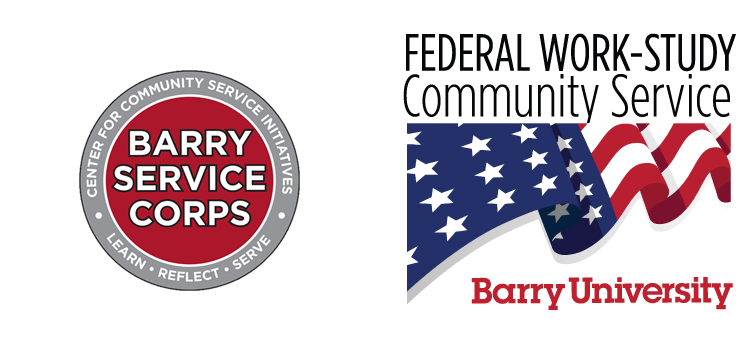
The 2021–2026 Strategic Plan for Community Engagement calls for the Barry Service Corps to be enhanced to increase its effectiveness in providing authentic learning experiences that prepare students for productive employment and engaged citizenship. Most BSC members participate through Federal Work-Study Community Service.
The Barry Service Corps (BSC) will be expanded next academic year and the civic leadership cohort will be strengthened.
BSC membership is expected to increase by 50 percent—from just over 40 students in 2020–2021 to about 65 in 2021–2022.
BSC Fellows, who form the civic leadership cohort, receive specialized training to facilitate both on-campus and community-based programs and events. In addition, they maintain a sharp focus of social justice issues, which they address through collaborative work with community partners.
The Center for Community Service Initiatives (CCSI) is finalizing details of the planned expansion of the BSC program and the enhancement of the civic leadership component.
During the 2020–2021 academic year, 44 BSC members provided 5,195 hours of service to more than a dozen community partner organizations.
An end-of-academic-year survey found that the majority of members became increasingly aware of the benefits of community service. Members reported that their BSC experience made them feel connected to the community and motivated to continue serving.
CCSI staff member Liz James, who shared the survey results, pointed out that members also articulated how they supported community partners in addressing social issues—from homelessness and food insecurity to educational inequity and gun violence.
Good Report Card
Community partners gave each of their assigned BSC members a good report card. The community partners include A New Start: Financial & Social Services, Breakthrough Miami, Easter Seals South Florida, Jewish Community Services of South Florida, Our Little Roses Foreign Mission Society, and Peace Education Foundation.
Two BSC Fellows, Isaly Ortiz and Dai’ Jonnai Smith, received the Community Impact Award in April. Earlier in the academic year, BSC members Christa Jeanty, Samentha Calixte, and Rodney Morvan were featured in Community Engagement News as students contributing to community impact.
Established during the 2012–2013 academic year as the flagship civic engagement program for students, the BSC fosters civic learning and leadership while engaging students in collaborative service focused largely on salient social issues.
“The Barry Service Corps has been instrumental in the personal and professional development of the students who participate,” noted Courtney Berrien, associate director of the CCSI. “Over time and consistently,” she added, “we have seen BSC alumni—especially from the BSC Fellows cohort—remain engaged in their communities, with many students finding their first job through the networks and skills they developed through the program.”
The 2021–2026 Strategic Plan for Community Engagement calls for the Barry Service Corps to be enhanced as the centerpiece of student civic learning and leadership development. The aim is to increase the program’s effectiveness in providing authentic learning experiences that prepare students for productive employment and engaged citizenship.
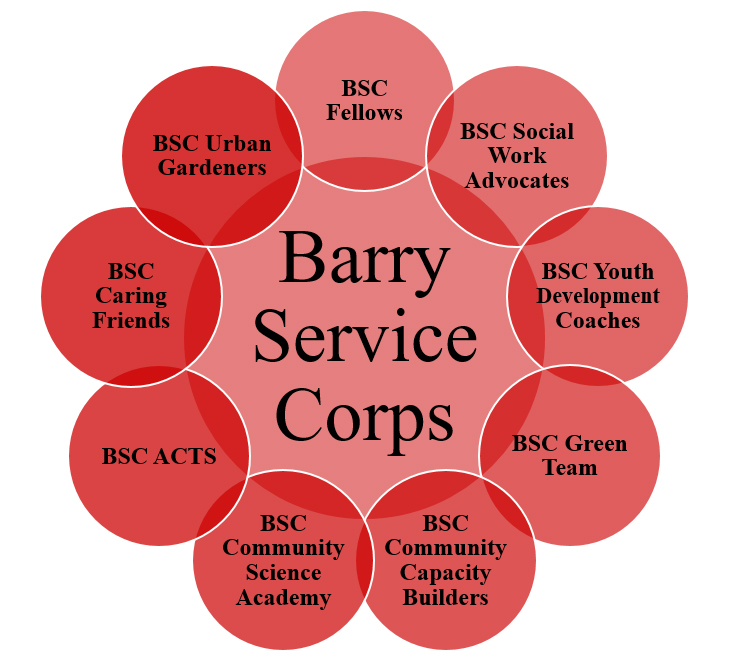
This past year, participating students were placed in five program cohorts: BSC Fellows, Capacity Builders, Caring Friends, Youth Development Coaches, and Urban Gardeners.
The BSC Fellows generally function as peer mentors, reflection leaders, and service project coordinators, supporting the community engagement work of the CCSI. Capacity Builders provide program and service support to community partners; Caring Friends engage in social interaction with elderly community members and persons with disabilities; Youth Development Coaches offer academic and developmental support to youth in schools and other community settings; Urban Gardeners help to maintain the Barry Urban Garden and to support local community organizations addressing food insecurity.
The CCSI coordinates the BSC program in partnership with two offices—Human Resources and Financial Aid. Most members are participants in Federal Work-Study Community Service; others benefit from the Community Engagement Incentive Program.
Courtney Berrien will take over from Liz James as coordinator of the BSC program next academic year. Brittney Morales, a graduate student, will remain the program facilitator.
Deliberative Dialogue Forums Bring Stakeholders Together To Grapple With Social Issues
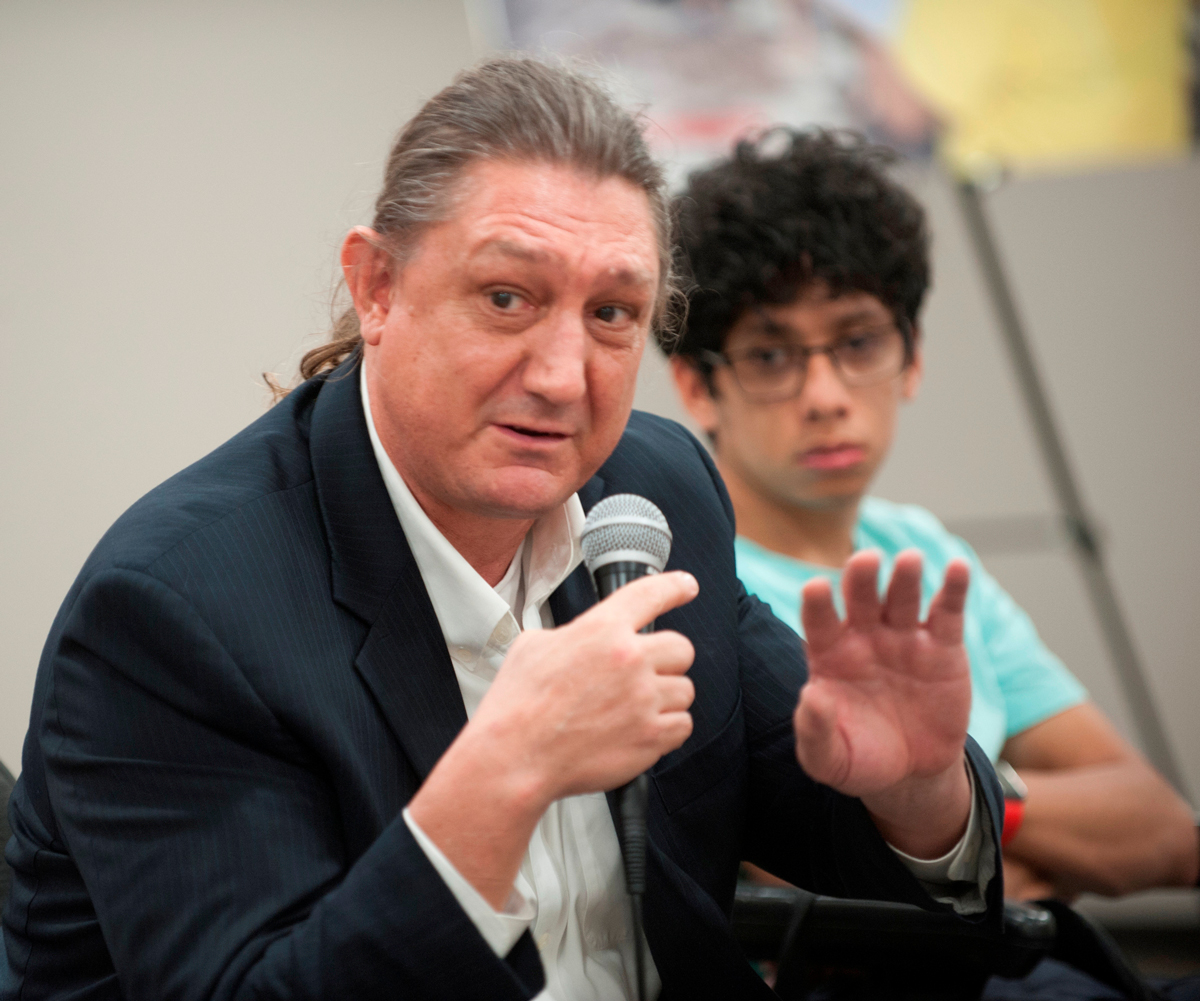

The CCSI hosted a forum titled “Natural Disasters and Climate Change: Is Global Warming Causing More Hurricanes?” in April 2019. On a panel of lead participants was Dr. William “Bill” Russell, an assistant dean in the College of Arts and Sciences. Margaret R. Stewart, director of the Center for Earth Jurisprudence at the Barry School of Law, moderated the forum.
Over the years, the Deliberative Dialogue Series brought stakeholders together to grapple with a variety of social issues. From the death penalty to the impact of COVID-19 on Black and Brown communities, forums for dialogue with deliberation addressed critical issues.
Since the 2012–2013 academic year, the Deliberative Dialogue Series has also tackled such issues as climate change/global warming and sea-level rise, gun rights and gun control, human trafficking, hunger and homelessness, immigration reform, the opioid epidemic, and the school-to-prison pipeline. A forum on restoring felons’ voting rights was held in September 2018.
Barry’s Deliberative Dialogue Series was launched during the fall semester of 2012. Cosponsored by the CCSI and the Department of Sociology and Criminology, the first forum was on capital punishment—“The Death Penalty: An Eye for an Eye?” The standing-room-only event featured Herman Lindsey, a Florida death row exonoree.
The 2020–2021 series titled “Race Matters” threw light on the enduring manifestations of racial injustice in the American society.
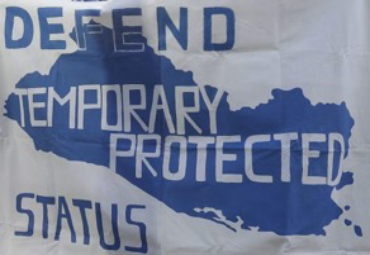
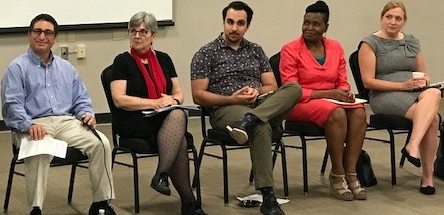
ABOVE: A forum on Temporary Protected Status was part of the 2019–2020 Deliberative Dialogue Series. Lead participants were (from left) Dr. Sean Foreman, professor of political science; Dr. Karen Callaghan, professor of sociology; Antonio Rodriguez, political strategist for the College Democrats of America; Marleine Bastien, executive director of the Family Action Network Movement; and Adonia R. Simpson, director of the Americans for Immigrant Justice Family Defense Program.
BELOW: “Rising Seas in South Florida” was the topic of the deliberative dialogue in April 2016, and a forum focused on the problem of homelessness took place in November 2017.
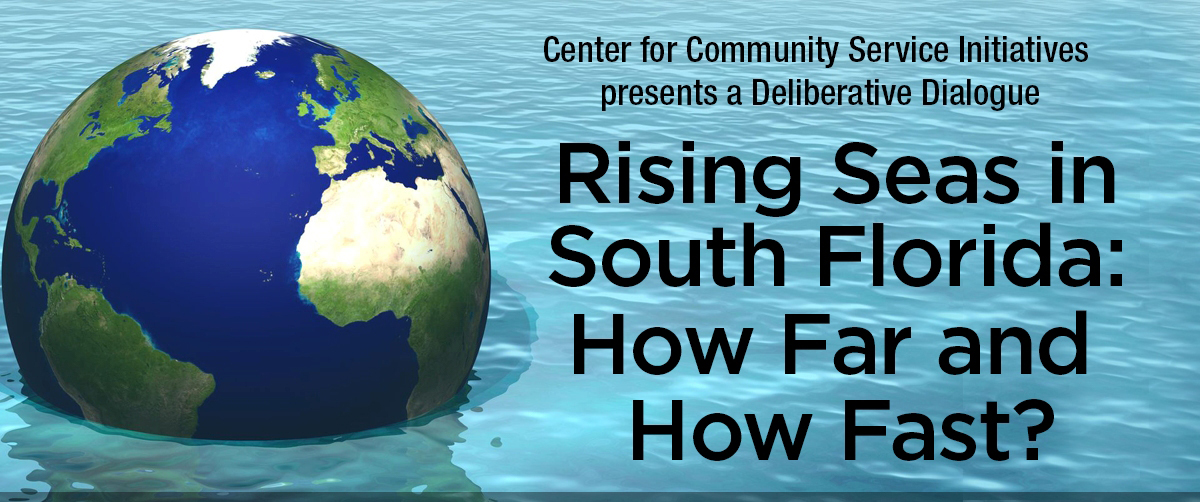
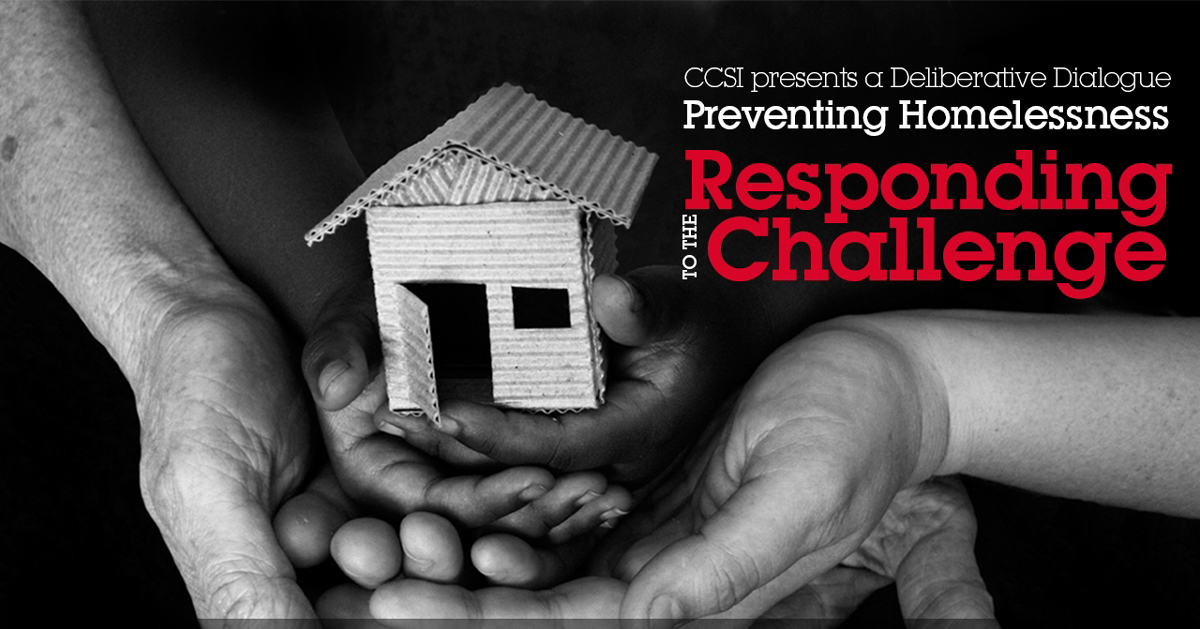
The CCSI organizes the Deliberative Dialogue Series as an approach to civic learning and engagement in addressing hot-button social issues.
The series of facilitated forums elicit “voices and views from campus and community.” Students, faculty, staff, alumni, and community members then work toward a shared understanding of social issues, practical solutions to those issues, and collective action for social change.
Engaged Department Award Presented To Nine Winners Over The Years
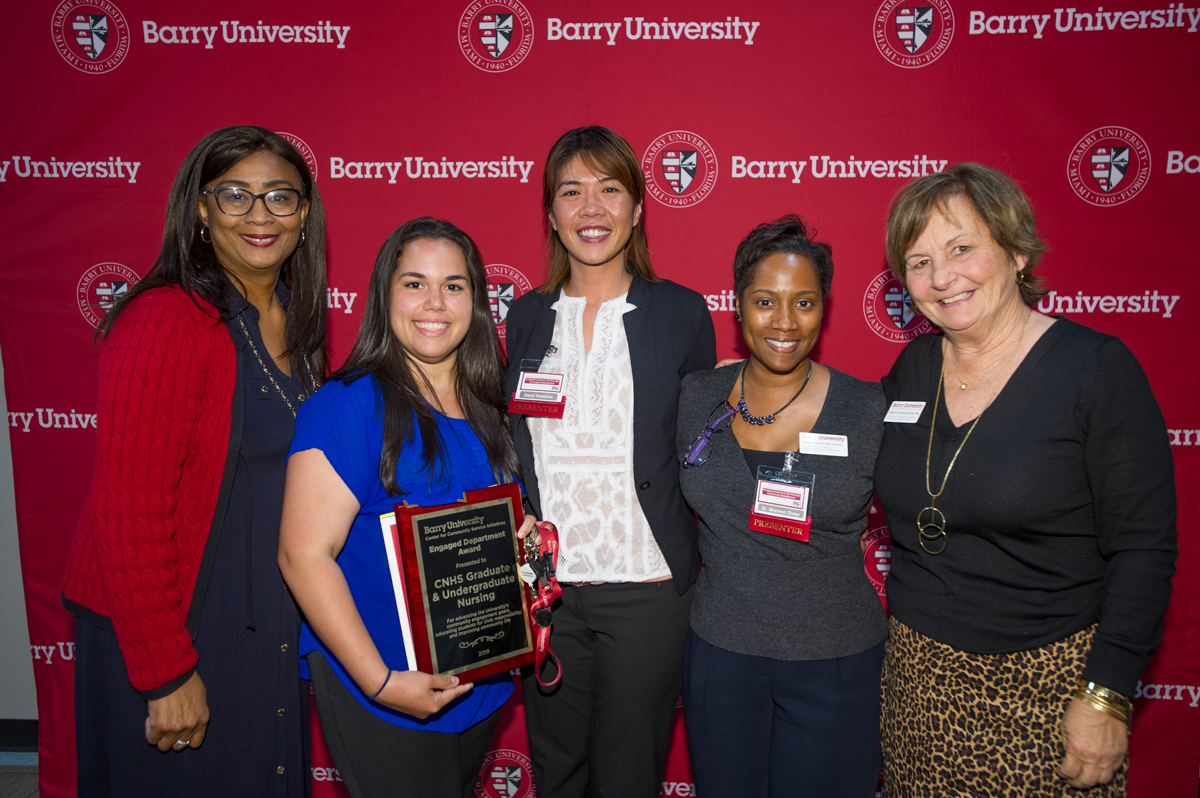
The College of Nursing and Health Sciences’ Graduate and Undergraduate Nursing is among the winners of the Engaged Department Award.
During the first 10 years of Barry’s Center for Community Service Initiatives (CCSI), there were nine winners of the community engagement award in the Engaged Department category.
The first winner was the Department of Sociology and Criminology, and the most recent winner was the Andreas School of Business. Two departments won the award in 2016.
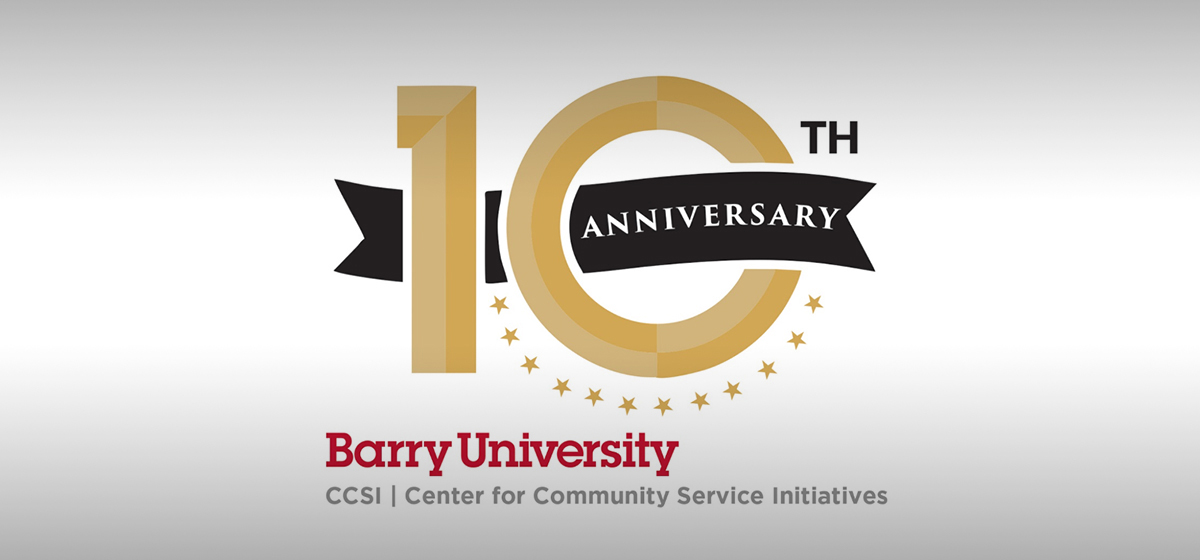
Engaged Department
| 2014 |
|
| 2015 |
|
| 2016 |
|
| 2017 |
|
| 2018 |
|
| 2019 |
|
| 2020 |
|
| 2021 |
|
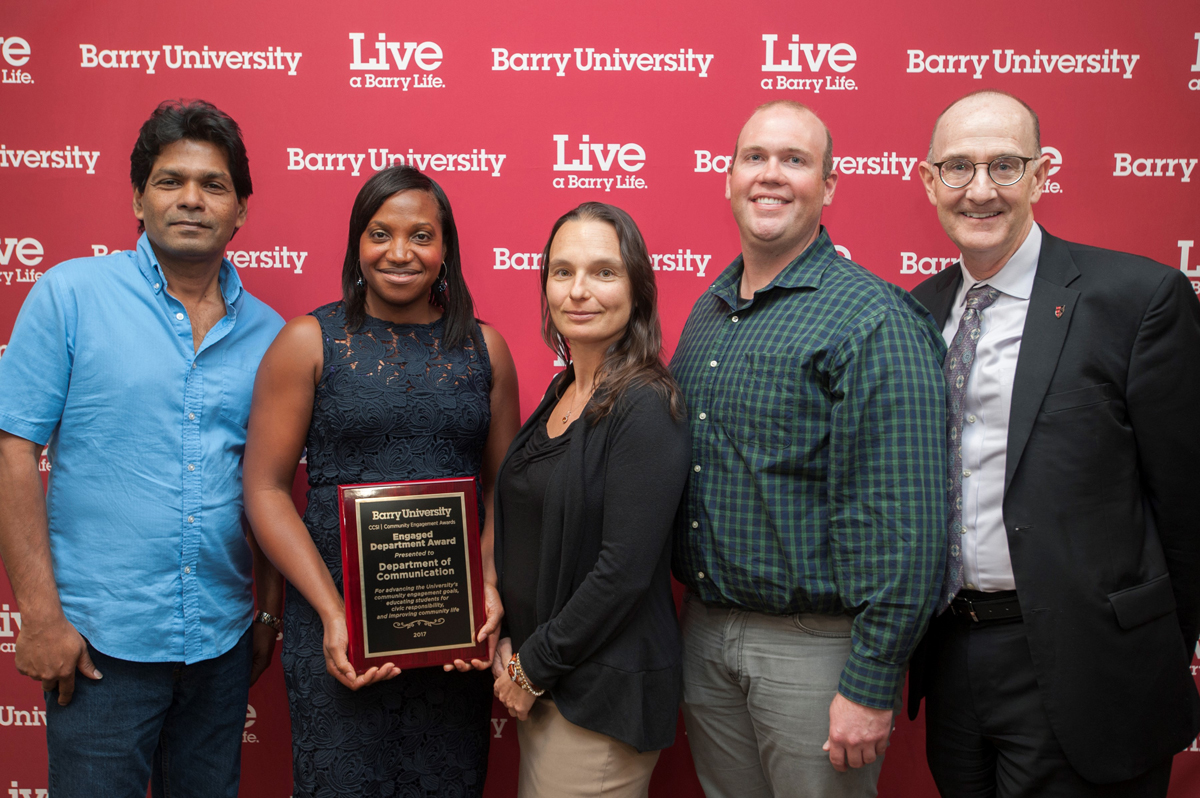
The Department of Communication won the award in 2017. Engaged Department is one of seven major categories of community engagement awards at Barry.
The seven major categories of awards for community engagement at Barry are Community Impact, Community Partnership, Community Engagement Educator, Community-Based Research, Community-Engaged Scholarship, Service-Learning Faculty, and Engaged Department.
The CCSI, which is marking its 10th anniversary this year, hosts the annual Community Engagement Awards. The primary purpose of the awards is to publicly recognize students, faculty, staff/administrators, departments, and community partners for their participation, contributions, and achievements in various areas of community engagement.
COMMUNITY ADVISORY COMMITTEE: Barry’s Community Advisory Committee is being reorganized, and the provost is expected to appoint new members by the start of the 2021–2022 academic year.
ALTERNATIVE BREAKS: During the CCSI’s first 10 years, students, together with faculty and staff members, took service immersion trips to several communities, at home and abroad.
COMMUNITY ENGAGEMENT FAIR: The Community Engagement Fair drew community partners to campus to share information on the programs and services they offer and to seek student support. Next week’s issue of Community Engagement News will include a look back.
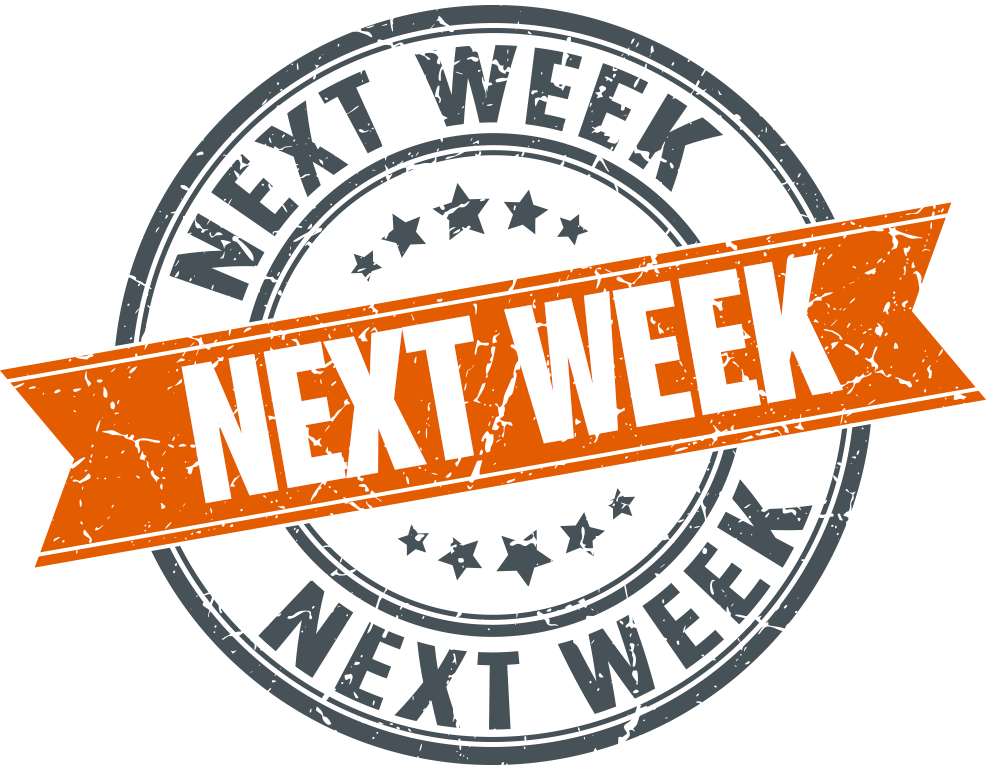
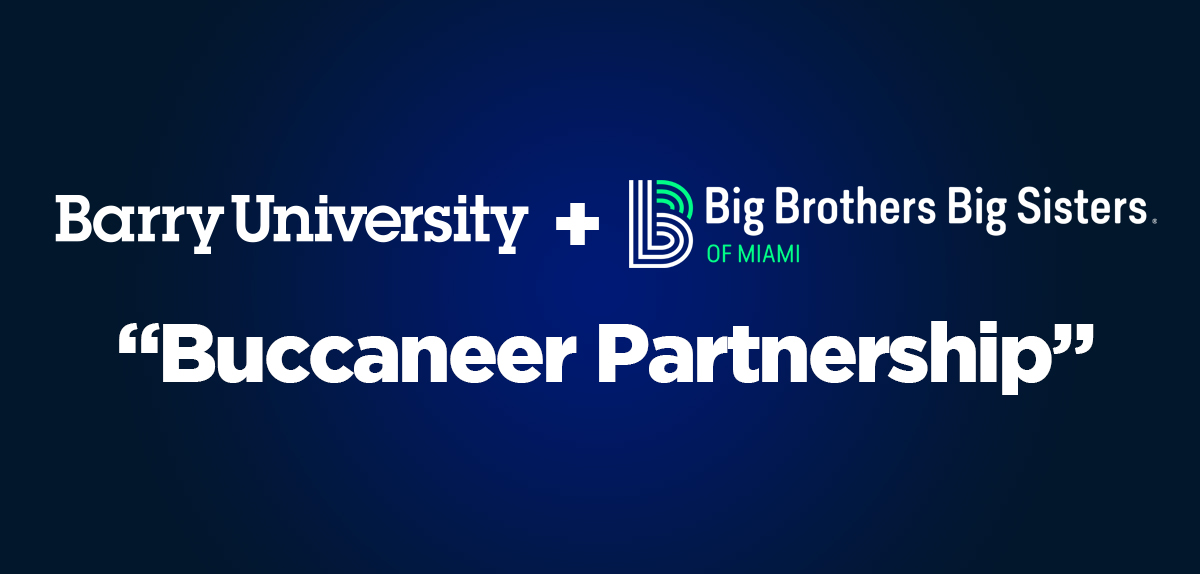
Apply to become a mentor (aka Big): https://bbbsmiami.org/volunteer/apply/
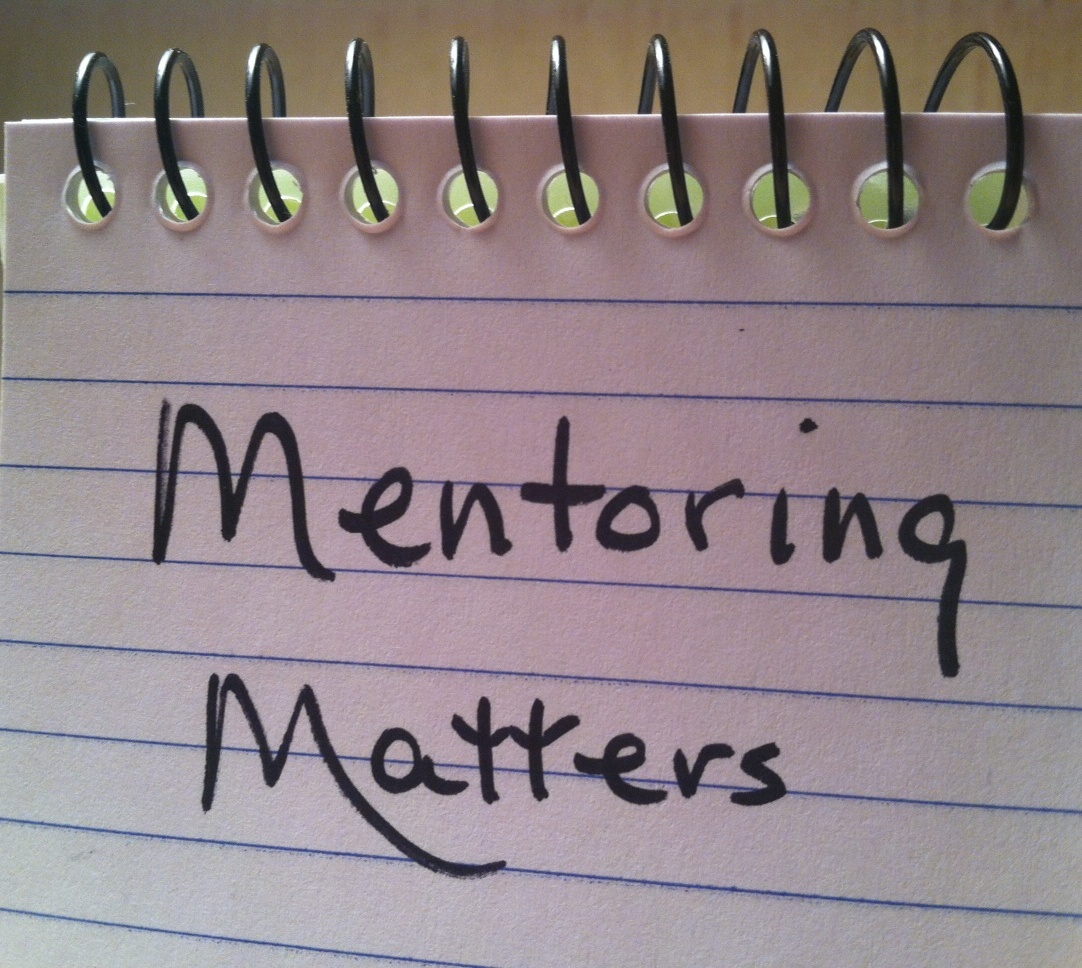

11300 NE 2nd Avenue
Adrian 208
Miami Shores, FL 33161

